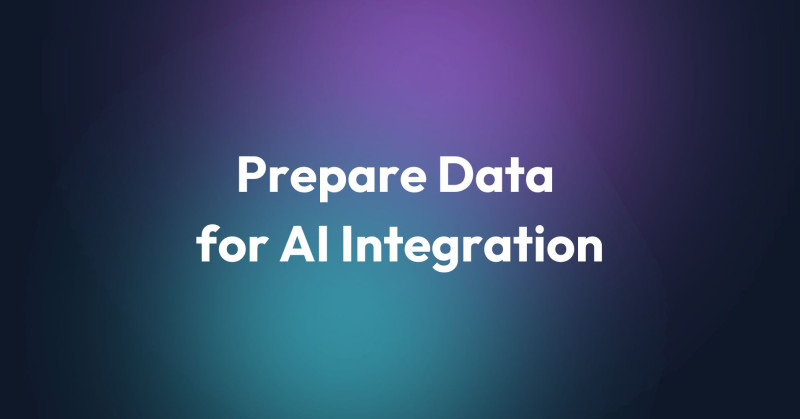Job boards are bursting at the seams with offers for programmers - but not every one is met with the same interest from candidates. What are IT professionals looking for in an ideal job? In addition to salary, what counts are engaging projects, development opportunities and alignment of personal beliefs with the organization's mission.

To attract the best candidates, employers need to deeply understand what really matters to programmers. Let's take a look at six key factors that influence their decisions.
What Motivates Software Developers? 6 Key Areas
As we have already mentioned, programmers are guided by a number of factors when choosing a job that go beyond salary. The most frequently cited areas that influence their decision to choose a particular organization are:
- Technologies and projects
- Learning opportunities
- Work culture and team atmosphere
- Remote work and flexible working hours
- Stability of employment
- Mission and values of the company
1. Technologies and projects
One of the most important aspects that motivate developers are the technologies and projects they can work on. Modern technologies are a real magnet - developers want access to tools that allow them to develop their skills and engage in innovative projects.
For example, during recruitment interviews, questions are often asked about versions of tools such as PHP or Symfony, as candidates pay a lot of attention to whether they will be working with the latest solutions.
Autonomy in the choice of tools and frameworks is also an important factor. Companies that offer more freedom in this area become more attractive. Also, the opportunity to change technology stacks and learn new tools is tempting for developers looking for new challenges.
In the context of employer branding, promoting innovative projects is a great way to build the image of an attractive employer. Technical blogs, case studies and conference appearances can be great tools for attracting candidates.
How to run an interesting technical blog? You can take inspiration from Primotly's blog!
2. Learning Opportunities Motivate Developers
The IT industry is growing extremely rapidly, so opportunities for continuous learning are crucial for programmers. Training budgets, mentoring, and access to training, including language courses, for example, are a big advantage when recruiting. Programmers want to make sure they have access to new training, courses and conferences to keep them abreast of the latest technology trends.
Development and mentoring programs offered by companies are not only attractive, but also build employee loyalty. Employer branding should highlight these aspects - employee success stories, promotions and the acquisition of new skills can become part of a communication strategy on social media or on a career page.
3. Organizational Culture and Supportive Work Environment
According to many statistics, the atmosphere is one of the most important motivators for joining a company. A collaborative environment, openness to feedback and an agile management structure allows developers to feel comfortable and creative. The flat structure and quick decision-making are especially appreciated.
As part of an employer branding strategy, the work culture can be promoted through social media, interviews with employees and coverage of company events. Authentic messages about the work atmosphere and how teams operate can effectively attract potential candidates.
4. Flexible Working Hours and Remote Work Opportunities
Time flexibility and the ability to work remotely have become the norm, especially after the COVID-19 pandemic. Programmers value the ability to adjust working hours to their daily rhythm and the option to work from anywhere in the world. For many of them, work-life balance is a key factor in deciding where to work.
Companies that offer flexible working hours and the option to work remotely gain competitiveness in the labor market. How an employer approaches time management can also be an important part of an employer branding strategy.
5. Stability and Company Reputation Important for Software Engineers
In times of economic uncertainty, job stability is one of the key factors in choosing a job. Programmers want to be sure that the company has a stable position in the market. Therefore, it is worthwhile for employers to emphasize their financial stability and growth during difficult times, which can build trust among potential candidates.
Equally important is the company's reputation in the IT market. Companies that care about ethics, transparency and sustainability gain employee loyalty and stand out from the competition.
6. Alignment with Mission and Company Values Can be a Motivation to Stay in a Team
More and more developers are paying attention to the company's mission and values with which they want to identify. Projects that have a real impact on society or the environment are crucial for many IT professionals when choosing a job. Employer branding should therefore focus not only on what a company does, but also on why it does it.
Companies that clearly communicate their mission and values attract those candidates who share the same ideals.
What Motivates a Software Developer?
Programmers are increasingly driven by factors other than salary when choosing a job. Cutting-edge technologies, development opportunities, flexible working conditions and an inspiring organizational culture are key for them.
Companies that can authentically and transparently communicate these values through effective employer branding have a chance to attract the best IT talent and build their long-term loyalty.
Employers who understand these needs and emphasize them appropriately increase their chances of attracting the most valuable professionals in the technology world.





















